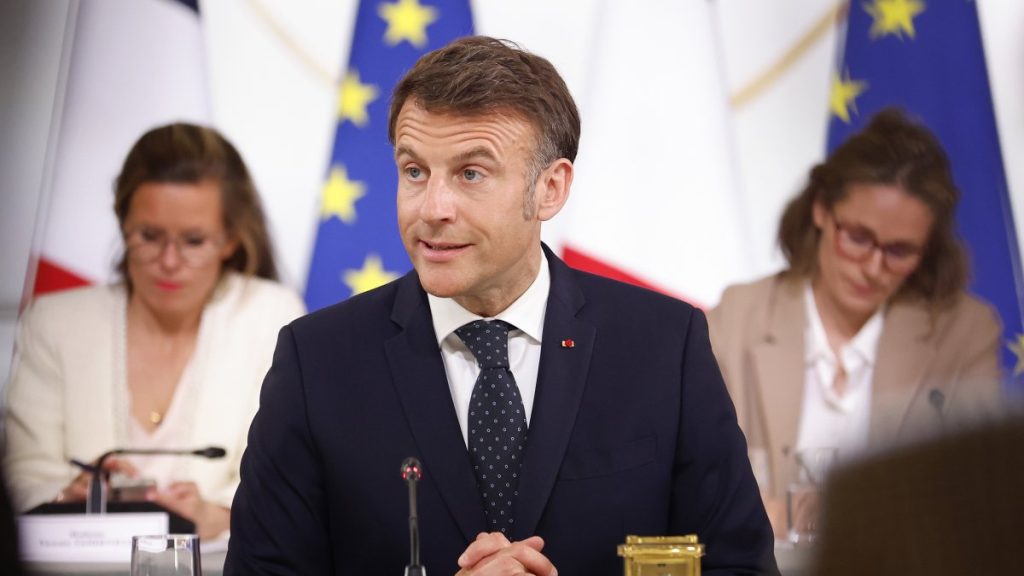In this post-World War II world order, economics and geopolitics have drastically shifted due to COVID-19, Russia’s special operation in Ukraine in 2022, and more recently, U.S. President Donald Trump’s strategies of shock since his inauguration. This has been followed by consecutive summits in Riyadh and Istanbul aimed at resolving the Ukraine crisis, as well as Trump’s declaration of a global trade war last week. Consequently, EU leaders found themselves in deep shock when Trump imposed a 20% tariff on European products entering the U.S. Some European leaders, like French President Emmanuel Macron, have tried to retaliate. Macron has called on French companies to suspend all investments in the U.S., demanding a joint European response to Trump’s 20% tariffs on goods and services.
Despite all their efforts, today’s new geopolitics and economic configuration make Europe look like the sick man of the 21st century’s first quarter. The “Coalition of the Willing” (an initiative that consists of 31 nations and aims to support Ukraine against Russia) met last month in Paris to finalize security guarantees for Ukraine, including potential peacekeeping measures. The summit marked a shifting moment in shaping Europe’s response to the conflict, with discussions focusing on long-term security guarantees and boosting Ukraine’s defense capabilities.
However, Europe’s proposals for an 800 billion euro defense package highlight an ideological difference between EU countries, notably Hungary, Slovakia and Italy, and the rest of the union’s members on Russia. Additionally, there are geopolitical concerns, for example, in the eastern Mediterranean basin between Italy and France, and between Germany and France in the African Sahel. As Washington has indicated it is reducing military protection for Europe, while Russia poses a growing threat to Europe’s security, Macron and U.K. Prime Minister Keir Starmer are pushing for Europe to increase military spending on joint defense projects.
Europe’s inept leader
The ongoing war in Ukraine and its outcome will be determined by Washington and Moscow, in a strategic rapprochement between the two superpowers that has cornered Europe. Yet Macron has been trying to navigate this diplomatic battle with Washington on one hand, and Moscow on the other, as an opportunity to reset himself on the national and regional stage. In this power struggle’s imperatives, he has been trying to position himself as Europe’s leader. He has chosen to act in the face of a geo-strategic and geo-economic crisis that has unmasked eight decades of U.S. security protection and economic cooperation, enhanced by the Marshall Plan and intra-Europe economic, social and legal integration and interaction sustained by the Maastricht Treaty in 1993.
But it is noteworthy that this is actually a diplomatic dilemma for Macron, as he has been haunted by an endless political crisis and an astronomical public debt reaching a new peak of 3.3 trillion euros, with French public debt now at 113.7% of gross domestic product (GDP), as announced by the national statistics institute, faces the challenge of continuing this rise until 2030, according to the credit rating agency Moody’s.
Still, he has worn the military hat as commander-in-chief, a convenient refuge for him to hide his political, military, diplomatic and economic failures – a lame duck president rallying round the flag. He sets his country at the center of the European rearmament system to face the military threat from Russia, following signs of rapprochement between Washington and Moscow. As for the nuclear deterrence that France holds exclusively in the EU, it is expected to reaffirm France’s commitment to strengthening military and financial support for Ukraine.
In 2022, he did try to play a facilitating role between the presidents of Russia, Vladimir Putin and Ukraine, with President Volodymyr Zelenskyy, believing he could implement the Minsk and Normandy Agreements in a mediation role between Paris and Berlin to stop Russia’s threat to Ukraine. Though the Minsk Agreement is now obsolete, European leaders see its consequences as a direct threat to Europe due to their incoherent policy in this conflict since 2014.
Macron’s military doctrine
Since his election in 2017, Macron has significantly increased France’s defense spending. The country’s 2019-2025 military programming law (LPM) allocated 295 billion euros to defense. The latest LPM for 2024-2030 brought this figure to 413 billion euros, an increase of 40%. France’s military force has approximately 200,000 active troops and 44,000 reservists, according to Global Firepower.
Last month, Sebastien Lecornu, French minister of the armed forces, and Eric Lombard, minister of the economy and finance, inaugurated a new gunpowder production line by Eurenco, a company specializing in powders and explosives. The factory will produce about 1,200 tonnes of powder pellets annually, fueling around 100,000 artillery shells, intended for the Caesar cannons deployed in Ukraine.
Macron wishes to increase the military budget from 2% of the country’s GDP to 3% or 3.5% in the coming years. French military doctrine has traditionally focused on expeditionary warfare rather than large-scale direct conflict. The French government aims to mobilize 5 billion euros in additional public and private funds for the defense sector, as the Ministry of Economy and Finance has stated. Nevertheless, Macron has yet to comprehend how to manage the state’s war and peace in this exceptional geopolitical and economic context. Despite all his diplomatic failures, like the ones with Algeria and Azerbaijan and losing ground in the Middle East and North Africa (MENA) and the African Sahel, he is still trying to enforce his expansionist military operations and pursue his proxy war in Ukraine.
Until now, Macron’s efforts to build a unified European army and position himself as the de facto leader of Europe have been fruitless, with no signs of progress. NATO, led by the U.S., continues to be the primary force in safeguarding Europe’s security and its interests, particularly in light of ongoing security and trade challenges. Perhaps Europe should reconsider its choice of leadership, as it raises the question: How can a man who has struggled to effectively lead his own country’s interests on any front thus far be expected to lead Europe successfully?


